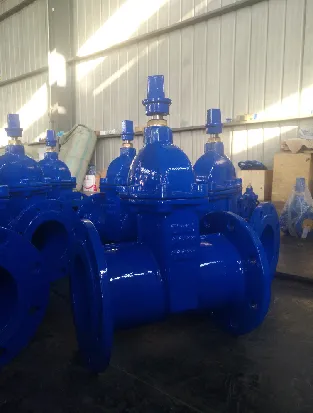gate valve used in oil and gas
Gate Valves in the Oil and Gas Industry
Gate valves play a crucial role in the oil and gas industry, providing reliable shut-off and control of fluid flow within pipelines and processing systems. Their ability to handle high pressures and temperatures, along with their straightforward operation, make them an essential component of infrastructure in oil and gas production, processing, and transportation.
Design and Functionality
A gate valve consists of a circular or rectangular piece called a gate, which slides between two seats to enable or halt the flow of fluid. This mechanism minimizes turbulence and pressure drop when the valve is fully open. Made from durable materials such as stainless steel, carbon steel, or alloy, gate valves are designed to withstand the harsh conditions typical of oil and gas applications, including corrosive environments and extreme temperatures.
The primary function of a gate valve is to provide a tight seal when closed and minimal fluid obstruction when open. However, gate valves are not ideal for flow regulation because they are designed primarily for either full flow or complete shutdown. They are commonly used in on-off applications, making them suitable for upstream, midstream, and downstream operations.
Applications in Oil and Gas
1. Upstream Operations In exploration and production, gate valves control the flow of crude oil and natural gas from the wellhead to processing facilities. Their reliability ensures that production can continue without interruptions due to valve failures.
2. Midstream Transportation Gate valves play a pivotal role in the transportation of oil and gas through pipelines. They are installed at strategic points, such as pump stations and junctions, allowing for the isolation of sections of the pipeline for maintenance or emergency response. Their reliability in sealing ensures the integrity and safety of the transportation system.
3. Downstream Processing In refineries and processing plants, gate valves provide essential control over the flow of processed fuels and petrochemicals. Their robust design helps prevent leaks and maintain the necessary pressure within systems, contributing to operational safety and efficiency.
gate valve used in oil and gas

Advantages of Using Gate Valves
- Durability Gate valves are built to last, withstanding the rigors of high pressure and extreme temperatures. Their sturdy construction ensures longevity, reducing the need for frequent replacements. - Minimal Flow Resistance When fully open, gate valves offer little resistance to flow, resulting in increased efficiency in the transportation of fluids. This characteristic is particularly important in pipeline systems where maintaining flow rates is critical.
- Versatile Material Options The availability of various materials means that gate valves can be tailored to specific applications, ensuring compatibility with different fluids and environmental conditions.
- Simplicity of Operation Gate valves are straightforward to operate, requiring only a quarter or half turn to move from the open to closed position. This simplicity makes them easy to use in both manual and automated systems.
Challenges and Considerations
While gate valves are widely utilized, they do have limitations. They are not suitable for throttling applications due to potential vibration and erosion at partially open positions. Additionally, the slower operation of gate valves compared to other types, such as ball or globe valves, may not be optimal in situations requiring rapid shut-off.
Proper maintenance is crucial for achieving the longevity and effectiveness of gate valves. Regular inspections and timely repairs ensure they perform as intended, particularly in critical applications where failures can lead to safety hazards or significant economic losses.
Conclusion
In summary, gate valves are a fundamental component in the oil and gas industry, serving critical roles in controlling the flow of fluids throughout the production, processing, and transportation phases. Their robust design, ease of operation, and minimal flow resistance make them the preferred choice for many applications. However, it is essential for engineers and operational personnel to understand both the advantages and limitations of gate valves to ensure safe, efficient, and reliable system performance. As the oil and gas industry continues to evolve, gate valves will remain integral to the infrastructure that powers our modern world.
-
The Smarter Choice for Pedestrian AreasNewsJun.30,2025
-
The Gold Standard in Round Drain CoversNewsJun.30,2025
-
The Gold Standard in Manhole Cover SystemsNewsJun.30,2025
-
Superior Drainage Solutions with Premium Gully GratesNewsJun.30,2025
-
Superior Drainage Solutions for Global InfrastructureNewsJun.30,2025
-
Square Manhole Solutions for Modern InfrastructureNewsJun.30,2025
-
Premium Manhole Covers for Modern InfrastructureNewsJun.30,2025
